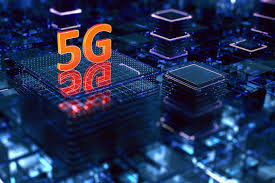5G is gaining popularity in Nigeria despite its youth. NCC Executive Vice Chairman Umar Dambatta reported 500,000 5G subscriptions.
Dambatta said this at a media event.
In addition, NCC Director of Public Affairs Reuben Muoka reaffirmed the NCC’s commitment to 5G access. 3G and 4G have slower networks, more lags, and fewer benefits than 5G. So yet, only MTN, Airtel, and MAFAB offer 5G.
Read also: NCC reports MAFAB’s 5G service online
Last month, MAFAB’s launch and network availability ignited social media disputes. Unlike MTN and Airtel, its launch is not publicized on social media or in the streets. Therefore, its 5G network is widely disputed. In defence, the NCC claimed MAFAB began 5G operations.
Dambatta reported rising broadband penetration in Nigeria. In July 2023, the NCC’s broadband access graph indicated 47.01% penetration. The figure matches June’s, which is intriguing. Between June and July, broadband subscriptions stayed at 89,730,341.
The NCC noticed a change in active internet subscriptions, from 158,944,660 in June 2023 to 158,982,962 in July. This is a rise of 38,302 new subscriptions. Teledensity also went up, from 115.30 to 115.70.
Why Nigeria needs more internet and 5G in particular
Nigeria has ambitious plans to spread internet access. It wants access to go from 47.01 per cent to 70 per cent by 2025. It also wants to cover 90% of the people in the country. Among other things, the end of the project will help the economy grow.
The Broadband Commission for Sustainable Development asked world leaders to collaborate on global connection, which seems natural.
“We need to create a digital world that is open to everyone, affordable, safe, and focused on people. Co-Chairman of the Commission, Carlos Slim, said, “There should be no digital deserts in the world, and no one should be left out of connectivity.”
Statista found that 864 million people in Africa had no internet connection. Most of these people live in rural places, which telcos haven’t always done an excellent job serving. As governments and telcos work harder to connect people to the internet, places with low penetration should get more attention.
